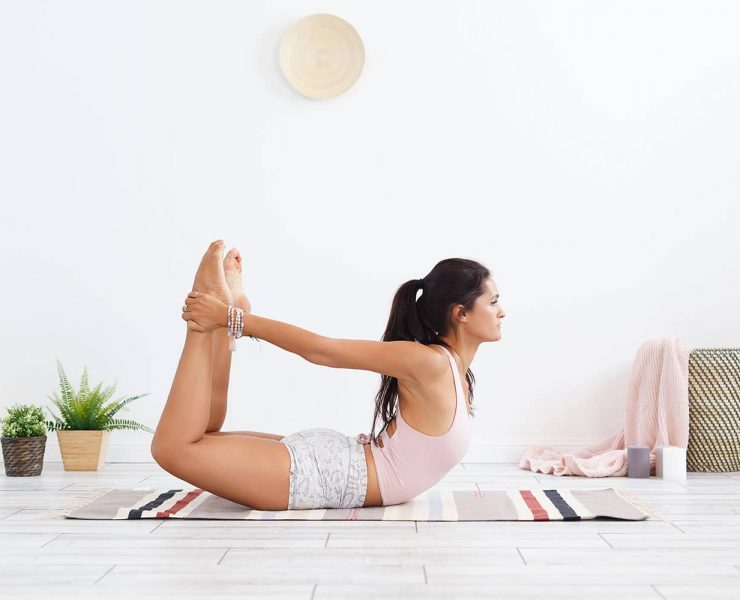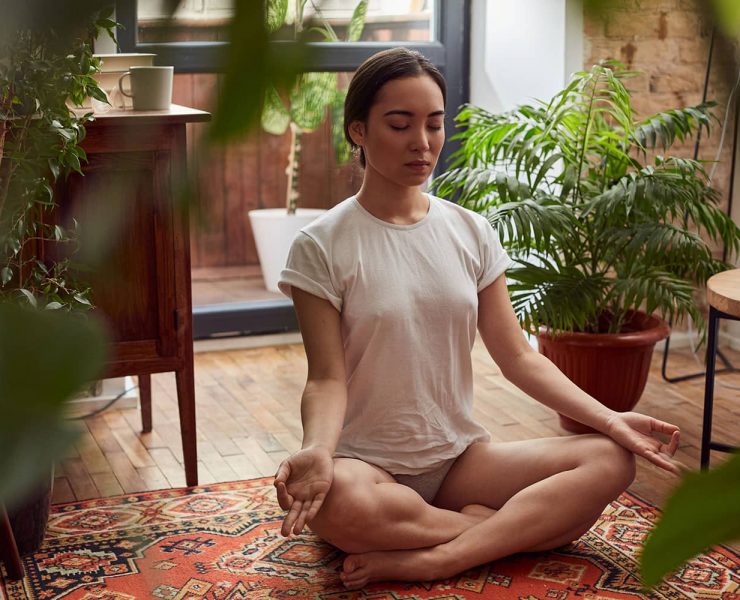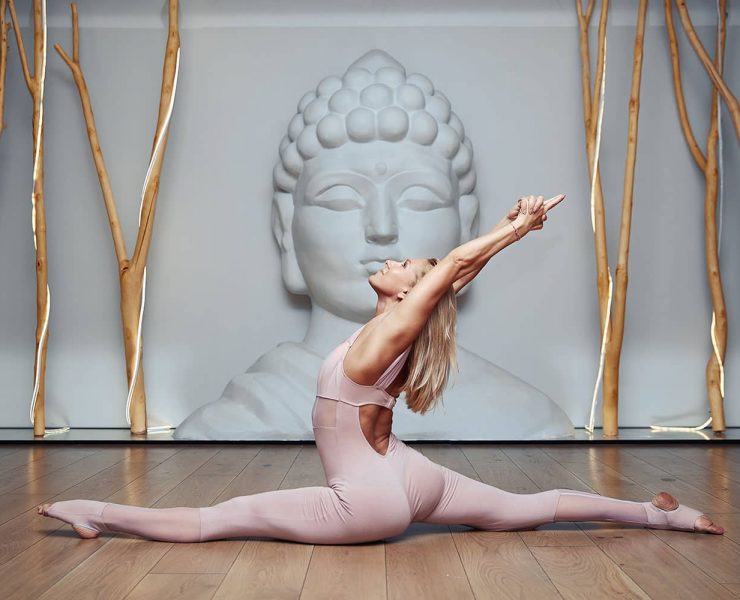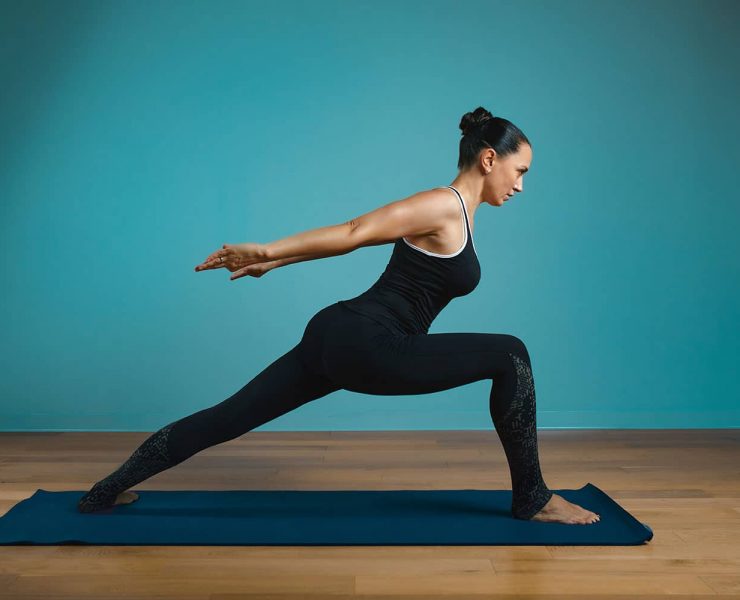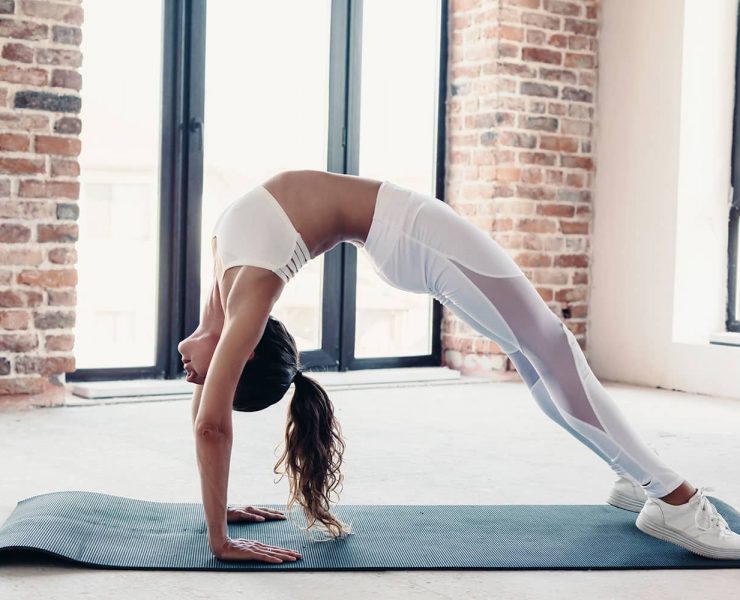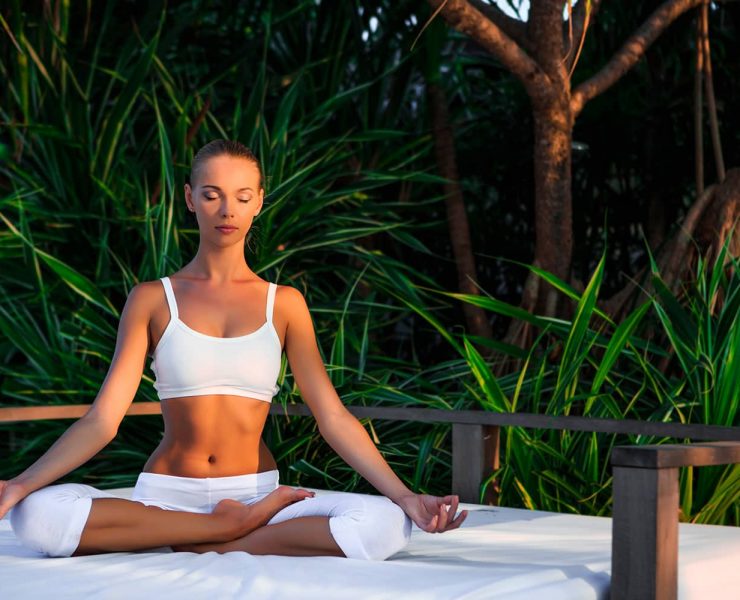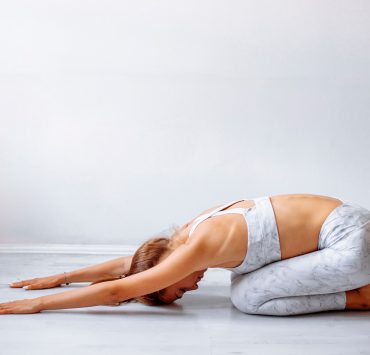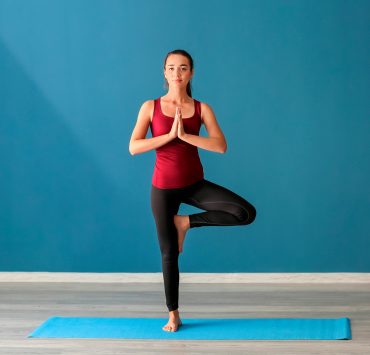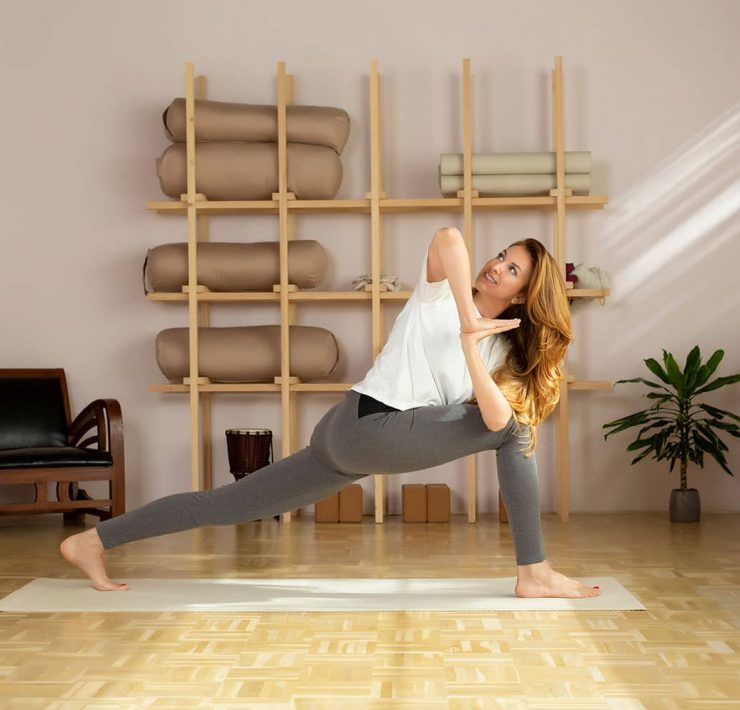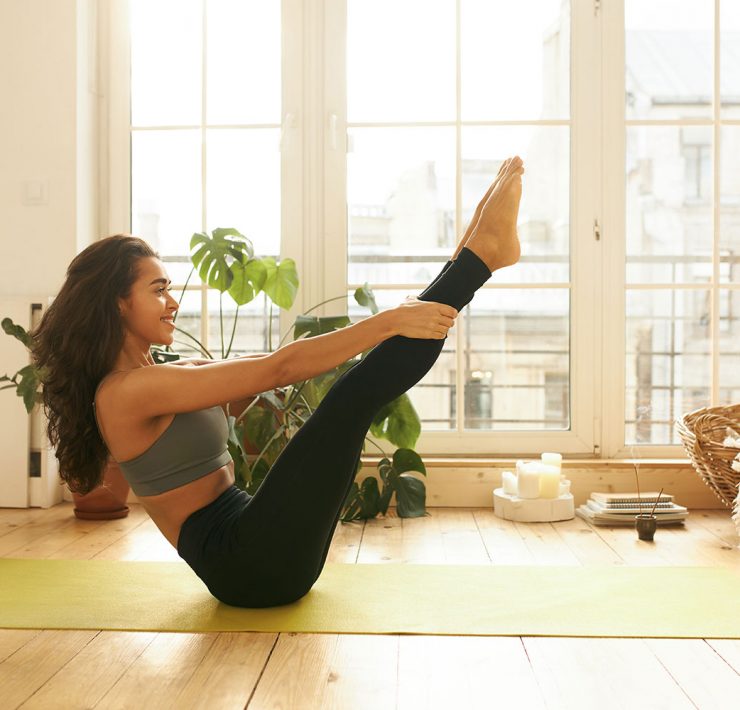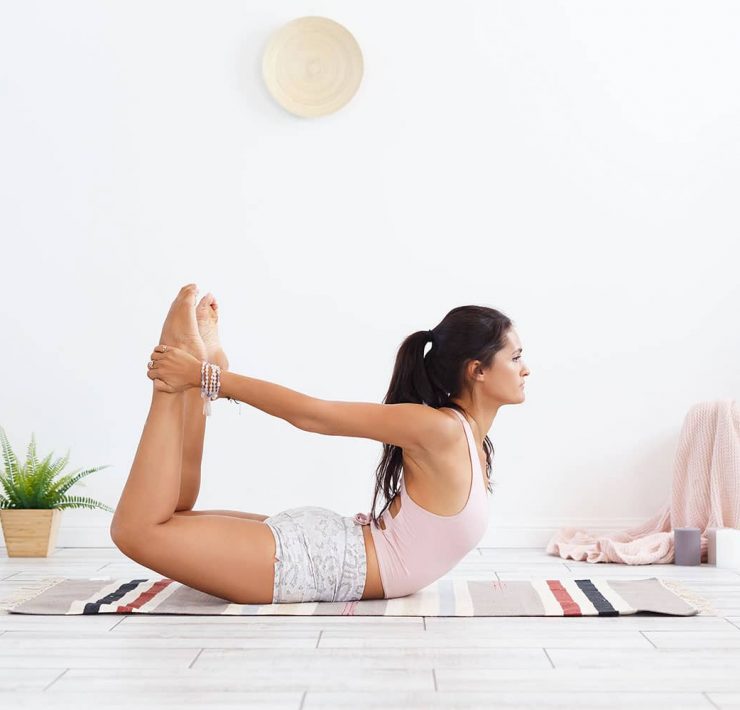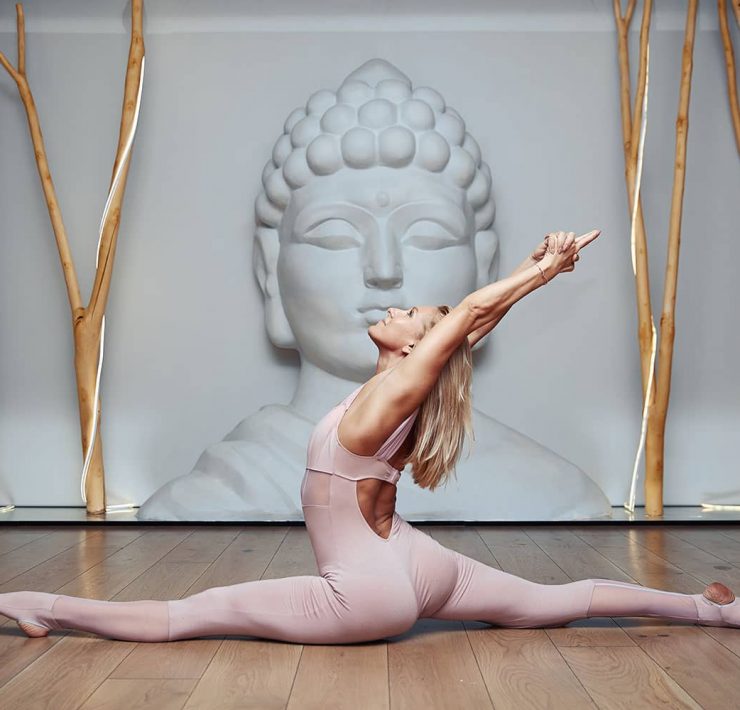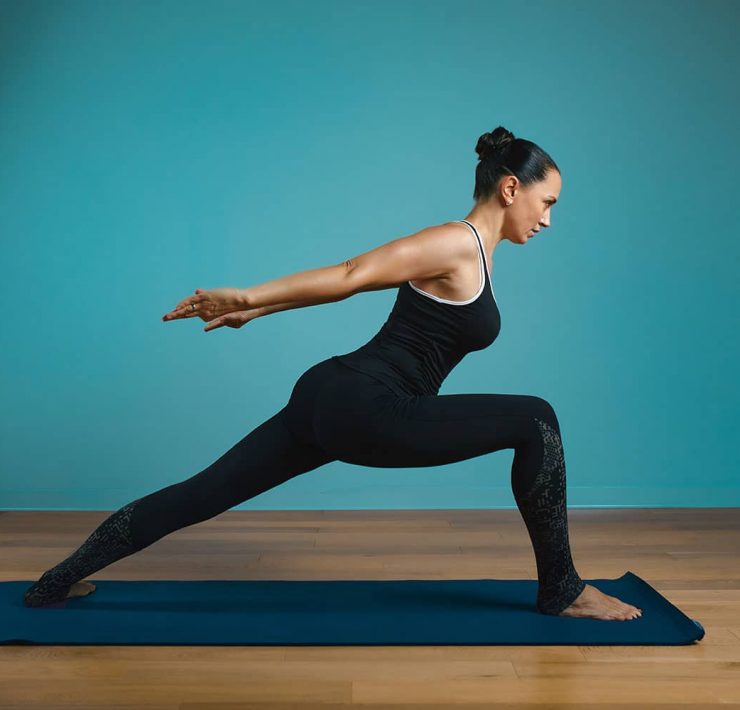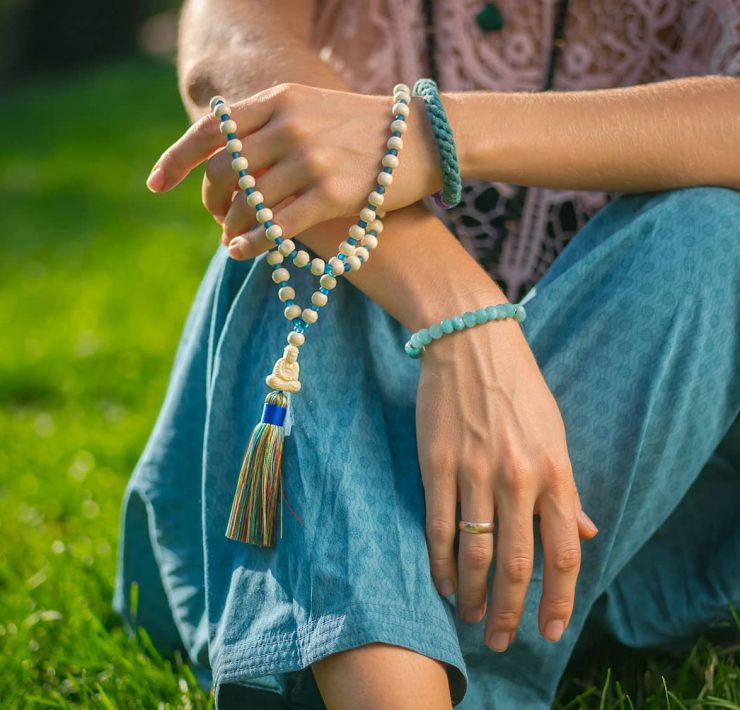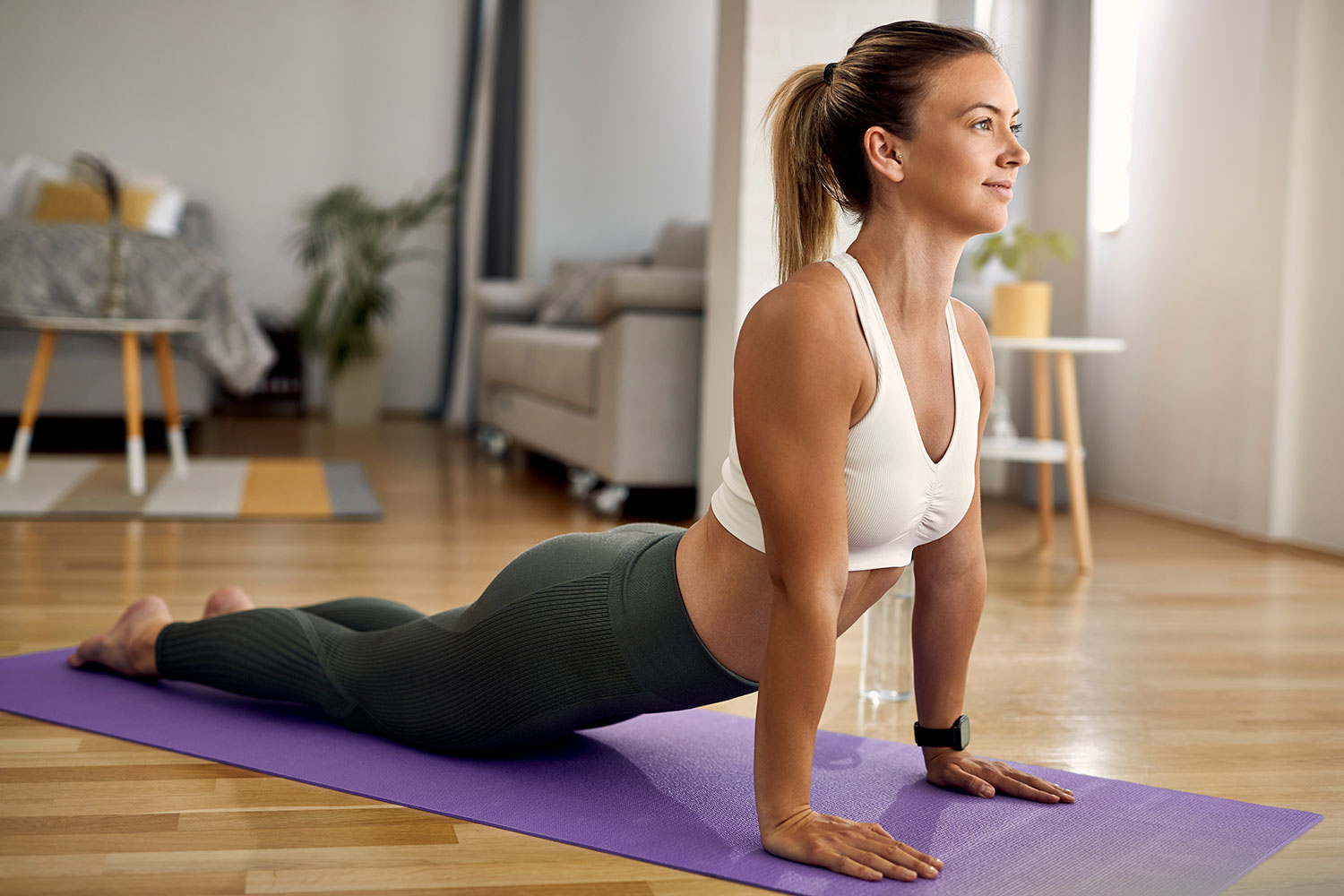
After spending nearly two decades as a relationship therapist, Patricia…
When it comes to yoga, there’s a lot of decisions to be made such as what style you should practice, which teacher jives best with your unique needs, and how the heck do you master a handstand? If you’re new to this whole ‘yoga’ thing, we’ve got you covered with everything you need to know. From what style is right for you to the essential postures and online resources you can’t miss out on – We’ve left no stone unturned!
What Are The Different Styles Of Yoga?

Vinyasa
Teachers link movement and breath in a dynamic, fluid-like style that’s usually accompanied by music. Vinyasa classes move somewhat quickly through postures in a dance-like fashion that elevates heart rates and moods.
Kundalini
Unlike many other styles, Kundalini classes are typically all seated or reclined positions with various exercises designed to influence the body, mind, and spirit. You can expect meditations and breathing exercises to carry you on your path to enlightenment in a Kundalini class.
Ashtanga
Ashtanga is an advanced practice that follows a strict sequence. The postures are designed to ignite heat in the body for a more profound physical transformation. The postures are always performed in the exact same order, and the series gradually become more advanced.
Yin/Restorative
Yin and Restorative have some differences, but they both use props and extended holding times to provoke deep relaxation. These meditative practices aim to restore length and elasticity in deep connective tissues while tapping into the parasympathetic nervous system.
Hatha
Hatha reins it back in with the fundamentals of yoga postures. These slower-paced classes hold each posture for several breaths to give students the opportunity for adjustments. The Sanskrit term “Hatha” actually applies to any style of yoga that teaches physical poses.
Bikram
Bikram classes really bring the heat with twenty-six specifically-sequences postures and two breathing exercises. Each class in 90 minutes and always entails the same sequence, so you know what you’re in for!
Iyengar
Iyengar uses props and assists to guide students toward the best possible alignment in each posture. Teachers emphasize a slow and steady approach to helping students find a safe and effective way to navigate each shape.
How To Start A Home Practice

Find a quiet, uncluttered space in your home for practice.
Create a set time for your yoga and make it a priority.
Require a minimum practice time each day.
Prepare your schedule ahead of time.
Choose a practice platform online for variety or stick with a set sequence.
Take time to sit and be still.
Start small with realistic goals and beginner sequences.
Essential Yoga Poses For Beginners
Trikonasana — Triangle Pose

Benefits:
Decreases symptoms of menopause
Strengthens legs and core
Enhances balance and stability
Stretches groin, hamstrings, hips, shoulders, calves, spine and chest
Relieves stress and tension
Promotes healthy digestion
Stimulates abdominal organs
How To:
Stand tall at the front of your mat and take a wide step back with the right foot.
Turn your right toes out slightly and keep your left toes pointing forward.
Lift both arms out to your sides in a T-shape.
Exhale and reach your left fingertips straight ahead.
Place your left hand on your shin, ankle, or a block inside your front foot.
Extend your right arm towards the ceiling.
Hold for 30 seconds on each side.
Balasana — Child’s Pose

Benefits:
Stretches back, hips, thighs, and ankles
Eases back pain
Relieves stress and fatigue
Soothes headaches
How To:
Start on all fours.
Open your knees a little wider than hip-width while bringing the big toes together.
Stretch your arms forward as you melt your forehead into the mat or a block.
Let the belly release between the thighs.
Breathe here as long as you need.
Virabhadrasana II — Warrior II Pose

Benefits:
Strengthens the arms, ankles, and legs
Tones the abdominal muscles
Stretches the chest, groins, and shoulders
Eases backaches
How To:
Stand tall at the head of your mat and take a big step back with your left foot.
Turn your left foot out and right toes straight ahead.
Line your front heel up with your back arch.
Inhale your arms out in a T-shape and gaze out beyond your right hand.
Exhale as you bend into the right knee, stacking it directly over the ankle.
Keep your spine straight and arms reaching equally in both directions.
Take 5 breaths on both sides.
Vrksasana — Tree Pose

Benefits:
Develops balance
Strengthens core, spine, thighs, calves, and ankles
Stretches chest, shoulders, groins, and inner thighs
Decreases flat feet
How To:
Stand at the front of your mat.
Begin to shift weight into your right foot as you kickstand your left foot.
Slowly lift your left foot off the ground and place the foot on your right ankle, calf, or inner thigh.
Let the left knee open to loosen any tension in the hips.
Keep your right leg straight without locking the knee.
Press your hands together at your heart or lift them overhead.
Stay here for 30 seconds before switching sides.
Adho Mukha Svanasana — Downward Facing Dog Pose

Benefits:
Promotes healthy digestion
Stretches hamstrings, shoulders, hands and calves
Reduces back pain and headaches
Improves blood flow to the brain
Strengthens legs, back, core, and arms
Decreases stress and fatigue
Prevents osteoporosis
Soothes symptoms associated with menopause and menstruation
How To:
Starting in a tabletop position, tuck your toes and root down through both hands.
Inhale and lift your knees off the mat.
Exhale and send your hips up and back, making a V shape with your body.
Straighten the legs to any degree and spread your fingers wide.
Roll the forearms in and the biceps away from your ears.
Let your head and neck unwind as you draw the shoulder blades down the back.
Engage your legs by pulling the kneecaps up to take weight away from the arms.
Release your heels toward the mat and tip your tailbone towards the ceiling.
Rotate your thigh bones inward.
Take 5-10 deep breaths here.
Bhujangasana — Cobra Pose

Benefits:
Strengthens back muscles
Improves spinal mobility
Stimulates abdominal organs
Reduces back pain
Opens the front side of the body
Stretches chest, lungs, shoulders, and abdomen
Decreases stress and fatigue
Therapeutic for asthma symptoms
Soothes sciatica
How To:
Begin lying on your belly with both palms planted under the shoulders and fingers spread wide.
Press the tops of the feet down.
Point your elbows straight back and hug your arm bones in towards your body.
Root your pubic bone down to the mat.
Inhale and roll your shoulders back to lift your upper body from the floor.
Keep your neck neutral and low ribs down.
Hold for one full breath before slowly exhaling back to the floor.
How To Work Your Way Up To Inversions

Strengthen your upper body.
Develop core stability.
Stretch your hamstrings daily.
Start small with simple inversions.
Seek advice and assistance from instructors.
Have patience with yourself and stay dedicated to progress.
Different Yoga Props
Mat, Blocks, Blanket, Bolster, Wheel, Strap
Best Online Resources For Yoga
My Virtual Yoga

My Virtual Yoga is an excellent platform for anyone interested in taking their practice to the next level. They use colorful cues to make choosing a class easier than ever! With a variety of lengths, styles, themes, levels, and teachers – There’s really something for everyone! Plus, there’s an added bonus for any French-speaking yogis – The website navigation and videos can all be set to French!
Website: myvirtualyoga.com
Trial: 7 days free.
Monthly Fee: $19/month or $199/year.
Instagram: @MyVirtualYoga
YogaGlo

YogaGlo boasts a wide range of renowned instructors met by an organized database of classes to choose from. Explore the different styles of some popular teachers from around the world and find what works best for you!
Website: yogaglo.com
Trial: 15 days free.
Monthly Fee: $18/month unlimited.
Instagram: @yogaglo
Gaia

Formerly known as Gaiam, Gaia hosts an extensive collection of videos about yoga pilates, fitness, spirituality, wellness, and contemplative topics. You have the power to choose yoga classes based on teacher, style, level, focus, and duration. It’s also a highly-accessible platform, making an appearance on Roku, Apple TV, IOS, and Chromecast!
Website: gaia.com
Trial: $0.99 for first month.
Monthly Fee: $9.95/month, $20 for 3 months.
Yearly Fee: $95.40.
Instagram: @wearegaia
Grokker

If you’re looking for an abundance of different classes with personalized tips and trick, Grokker is the place for you! This platform is rich in advice and wisdom from reliable yoga teachers and offers much more than just your average run-of-the-mill yoga classes. They also feature cooking classes, fitness courses, and sleep videos.
Website: grokker.com
Trial: 14 days free.
Monthly Fee: $14.99/month unlimited.
Instagram: @grokkerinc
Alo Moves

Formerly known by CodyApp, AloMoves is a fantastic place to grow your practice and learn from the most popular yoga celebrities around the globe. The videos are visually beautiful and offer programs to keep your training on track. Choose classes individually or as part of a bundled series on different areas of focus such as flexibility, strength, functional fitness, yoga, and weight loss.
Website: alomoves.com
Trial: 14 days free.
Monthly Fee: $20/month
Yearly Fee: $17/month
Instagram: @alo.moves
What's Your Reaction?
After spending nearly two decades as a relationship therapist, Patricia journeyed down the path of writing as a vehicle for sharing her wisdom. Her work reflects a sincere interest in readers’ wellbeing and is abundant with helpful advice and fascinating insight.
